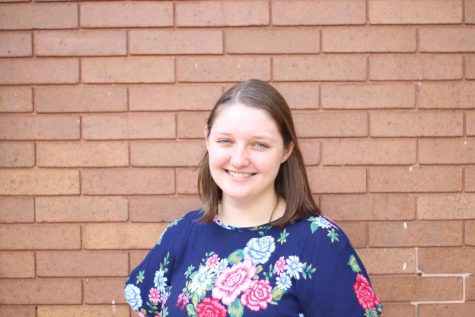Young: The duology of Catholicism
September 20, 2019
Accusations of sexual abuse in the Roman Catholic church are not new. The problem was not committed by a few “lone wolves” or even a recent development in our nation. I remember a few years ago when I first heard of the allegations levied against the Church, of which I was a member of since my baptism at two weeks old. Of course, I was horrified and in a state of disbelief. But a small part of me wasn’t surprised that such evil could exist in my world, even in a place that strives to be virtuous like the Catholic church. The church has always been good to me, but I have come to expect stories of pain and terrible deeds in my life.
Sexual abuse scandals have plagued the church for decades, but they are only just beginning to be addressed by the nation. Thanks to a new set of laws passed in the state of New York, scores of new lawsuits have been filed against the Roman Catholic Church and the Boy Scouts of America, among other organizations.
Just this week, The New York Times did a piece on Bishop Richard J. Malone, head of the Catholic Diocese of Buffalo—a particularly large group of Catholics. Malone kept a written record of priests accused of sexual abuse and did nothing. As of Wednesday night, Malone still had not resigned despite calls for his removal by the priests and parishes of the Dioceses.
Malone is not unique. His story serves as a stark reminder of the profound pain members of the Church have inflicted on its members. There are members of the clergy who took advantage of students left in their charge, altar boys whose first experience of activism in the Church was abuse at the hands of its leaders and adults still traumatized today by too-familiar touches that turned into inappropriate sexual relations.
There exists a split in my mind. Half of my mind knows that my Church, the center of my faith, has been hiding these horrors allowing them to happen for decades.
But the other half can’t help but remember a community that has always treated me kindly and welcomed with open arms.
I remember receiving the Sacrament of Reconciliation as a second grader and feeling a profound relief that came from admitting my darkest sins and being told that I am forgiven. That feeling was the same every time I went back. I was met without judgment and reminded that I am not bad, only human.
I remember my friends becoming altar servers and hiking up their white robes as they climbed up and down the altar. I had to hide a smile every time when they started fidgeting in front of the congregation while holding up the liturgical books for the priest to read from.
I remember the time I got sick at a Church event and sitting with the deacon while I waited for my parents to pick me up. He gave me a coat to wear to combat my fever and sat with me for 30 minutes, trying to keep my spirits up.
My memories don’t erase all the evil that has been festering within the Catholic church. But they help to remind me that not everyone is evil. The actions of others, no matter how terrible, do not define me or my religion. But that evil has hurt too many people, and it cannot be ignored any longer. The Catholic church is facing a long road to recovery. They need to earn the trust of their parishioners and the public before they can be the force for good that I remember them to be.



